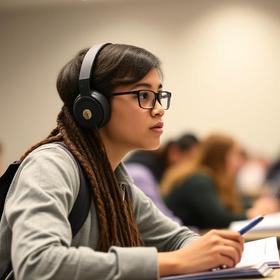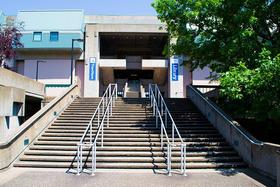Community colleges have always been safe havens where struggling students can bring themselves up to academic par before transferring to a four-year university. In some cases, this might mean repeating a course a number of times before getting the required grade to advance to the next level. However, budget constrictions are impacting repeat classes for students across the country, with some left wondering how they will complete their community college program. We will take a look at both sides of this issue to find out how institutions are struggling to balance their commitment to student achievement with their bottom line.
This video explains what to do when you fail a class.
California Setting Limits
California is one of the first to look into setting limits on repeat courses at community colleges across the state. According to a report at Inside Higher Ed, the California Community Colleges Chancellor's Office is looking into the feasibility of limiting the number of times students can repeat courses within their college system. Currently, a small number of California community college students may repeat a class as many as five times or more during their college career.
A spokesman for the chancellor's office, Terri Carbaugh, told Inside Higher Ed that the office was looking into the feasibility of a regulation limiting the number of times students can retake courses to save taxpayer dollars. The office would like to set a limit of four retakes, and then community colleges would have to find their own source of funding for additional classes – without using any taxpayer money to foot the bill. The idea came about after the office received a letter from a disgruntled student who could not enroll in necessary classes because of the number of retake students already signed up.
This video looks at the pros and cons of repeating a class.
"We're looking at every corner of the system to come up with efficiencies," Carbaugh said. She estimated that limiting retakes to four times could save the state as much as $1.5 million annually and provide an additional 740 seats in courses for fresh students who need them. Carbaugh's office also believes the policy would improve community college graduation rates across the state. The primary drawback to the policy is a shift away from the traditional open-access mission that community colleges for which have historically stood.
"As much as we're here to provide access, we're also here to serve those who desire to transfer or earn a degree," Carbaugh added. She states that the potential restriction is primarily designed to promote fiscal responsibility and improve student success.
Southwestern College Goes Proactive
One California school decided to get a jump on the restriction by forming a repeat policy of its own. Southwestern College in Chula Vista, California, has changed its rules on repeating courses, limiting the number of times a class can be taken to just two, rather than the previous three. An op-ed piece at the Southwestern College Sun accuses the school of trying to "pull the rug out from under its students," with little notification about the policy change.
The article also states that students require every possible chance to succeed in community college so they can graduate or transfer to a four-year university. The new policy simply doesn't cut it for students who struggle in a particular subject. The Southwestern College website does list reasons students will be allowed to retake a course but does not specify the number of times the class can be taken.
Michigan Looking into Repeat Courses
At Monroe County Community College, the school's president, Dr. David E. Nixon, has announced that the college will begin looking into the reasons students might repeat a course. While Dr. Nixon does acknowledge legitimate reasons for retaking courses at MonroeNews.com, he also believes the issue is worth further research. Currently, students who sign up for a course they have already taken will be asked their reasons behind the repetition. The college will track those reasons to determine if a policy change is required to minimize the incidence of retakes.
Financial Aid and Course Retakes
At Jefferson Community College in New York, repeating courses could affect your financial aid eligibility. According to the college website, some students who repeat courses may not be able to calculate the repeated class into their financial aid standing. Exceptions include students who must retake the course to maintain their academic standing or can use the repeat toward their degree requirement.
This video explains the impact of repeating a class on financial aid.
Repeating courses has been a long-standing tradition at many community colleges, but the times are a-changing. Students may want to look into the policy of repeating courses at the college they choose before enrolling, particularly if they struggle with a particular subject and anticipate needing to take a course a number of times before earning a passing grade.
Questions? Contact us on Facebook. @communitycollegereview















